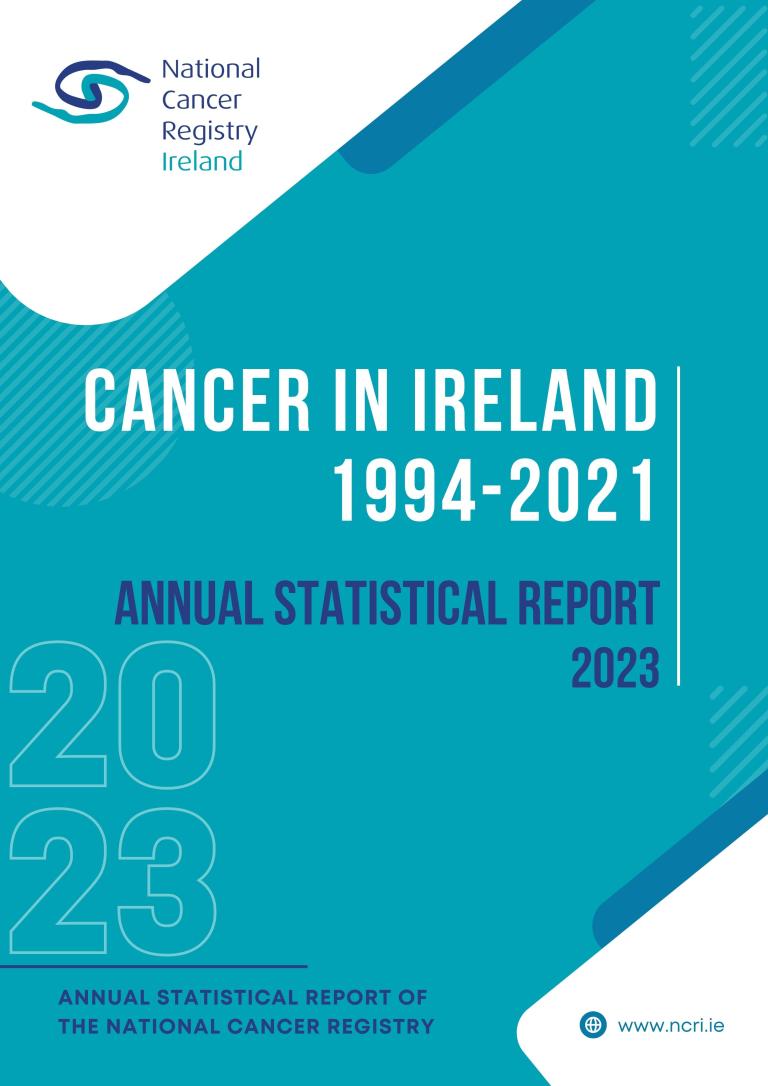Cancer in Ireland 1994 – 2021: Annual Statistical Report of the National Cancer Registry
NCRI’s Annual Report reveals the impact of age and stage at diagnosis on cancer outcomes

The latest Annual Statistical Report from the National Cancer Registry (NCRI) focuses on the impact of age and stage at diagnosis on cancer outcomes. The report titled: Cancer in Ireland 1994 – 2021 is an analysis of nationally collated data revealing the status of cancer in Ireland including statistics on cancer incidence, mortality, and survival.
Key findings include:
- Early diagnosis is associated with better cancer outcomes, reduced complexity of care for patients and lower cost of cancer care. A high proportion of some cancers (e.g. melanoma, uterine and prostate cancers) present at early stage with consequent 5-year net survival of up to 100% in many cases. Cancers with a population screening programme also experience high 5-year net survival when detected in early stages. However, late presentation (stage IV) remains common for some other cancers (e.g. head and neck, pancreatic and lung cancers) with consequent poorer outcomes.
- Older people experience higher cancer incidence and lower survival rates compared to other age groups. 5-year net survival for those aged 75+ is 46%, compared with 86% for those in the 15 - 44 year age group. Internationally, it has been shown that many factors underlie these findings including delayed diagnosis as older people may present later for medical attention of symptoms, patients having other serious illnesses which limit treatment options, poorer treatment tolerance, reduced physiological reserve and lack of representation in clinical trials.
- The number of invasive cancers (excluding non-melanoma skin cancers) presenting as an emergency was estimated at 14% during 2016-2019, down almost 6% since 2002. This fall from 20% to 14% was observed between 2002 and 2009, after which no further reduction was evident. Unfortunately, emergency presentation is associated with more advanced stage and therefore limited treatment options and poorer survival outcomes.
- More complete data on the impact of the COVID-19 pandemic on cancer diagnoses in 2021 indicates that the pandemic resulted in a 4% reduction in cancer diagnoses compared to what was expected that year. Early indicators suggest a return to expected rates of cancer diagnoses in 2022.
Share this page